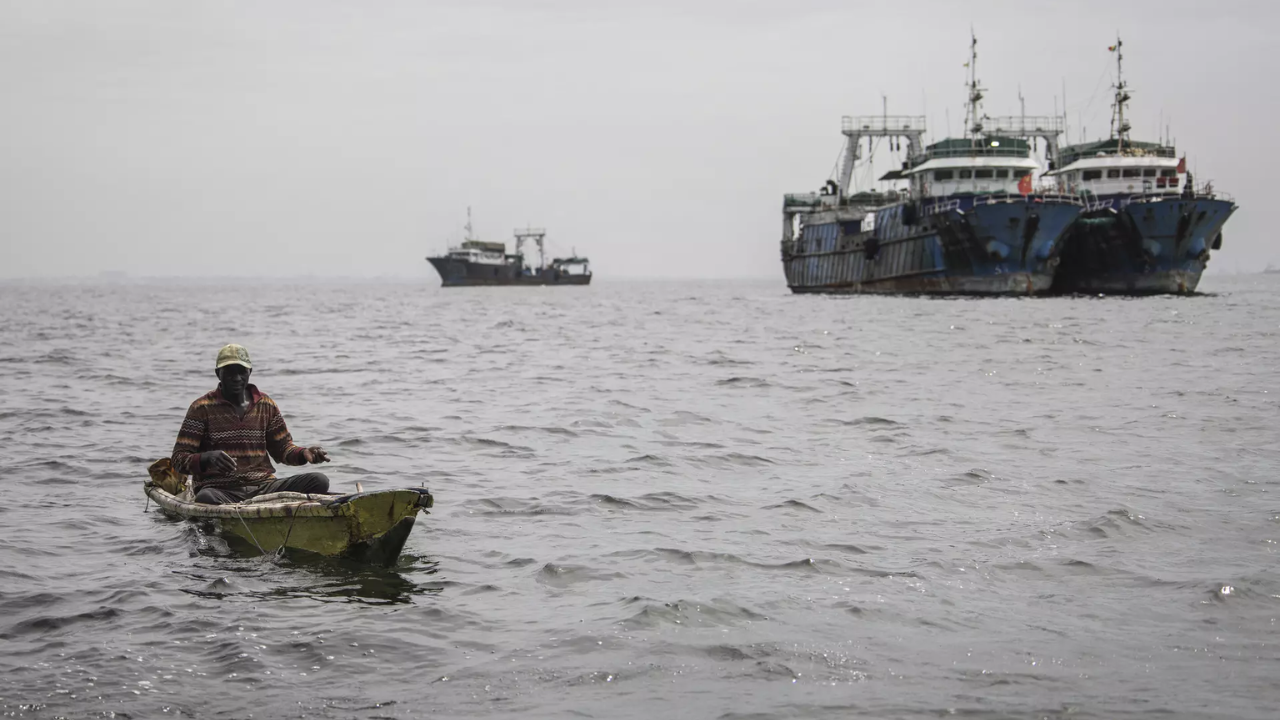CAIRO: Atlantic fishing nations have agreed to better protect sharks and rays by limiting the retention of several bycatch species, but advocacy groups warn progress is still lagging.
At the conclusion of the International Commission for the Conservation of Atlantic Tunas (ICCAT) this week, countries agreed on “new measures for the protection of cetaceans, whale sharks and mobulid rays” and the conservation of Atlantic blue sharks, according to a statement on Monday.
Sharks and rays are facing what conservationists have called an extinction crisis, with nearly two thirds of coral reef species at risk, according to a study this year that assessed data from the International Union for Conservation of Nature.
Threatened by overfishing, sharks and rays must be better protected by governments and fisheries, according to the Shark League of the Atlantic and Mediterranean, an advocacy coalition advancing conservation policies.
The group said the steps taken by ICCAT were positive but did not go far enough “to properly safeguard such inherently vulnerable species” as manta and devil rays, and whale and blue sharks.
ICCAT, a grouping of 50 countries including some of the world’s largest fishing nations, also reduced quotas for heavily fished blue sharks by 23 percent.
A new population assessment had warned the current blue shark catch was “too high to ensure long-term sustainability,” according to the Shark League, which likened the short-term impacts of the new quota to “a flip of a coin”.
The Pew Charitable Trusts conservation group said the measures agreed by ICCAT were “mostly disappointing”, with fishing nations failing to adequately address climate change or advance protections for other species, such as North Atlantic swordfish and western Atlantic skipjack tuna.
“After several years of positive progress, ICCAT could have continued its momentum, but instead failed to take expected actions to modernise management for some of its most valuable fisheries,” said Pew’s Esther Wozniak.
Despite agreeing on “improved management” in some areas, Wozniak said “the lack of progress on tuna, swordfish and climate change overshadow the advances that were made.”
At the conclusion of the International Commission for the Conservation of Atlantic Tunas (ICCAT) this week, countries agreed on “new measures for the protection of cetaceans, whale sharks and mobulid rays” and the conservation of Atlantic blue sharks, according to a statement on Monday.
Sharks and rays are facing what conservationists have called an extinction crisis, with nearly two thirds of coral reef species at risk, according to a study this year that assessed data from the International Union for Conservation of Nature.
Threatened by overfishing, sharks and rays must be better protected by governments and fisheries, according to the Shark League of the Atlantic and Mediterranean, an advocacy coalition advancing conservation policies.
The group said the steps taken by ICCAT were positive but did not go far enough “to properly safeguard such inherently vulnerable species” as manta and devil rays, and whale and blue sharks.
ICCAT, a grouping of 50 countries including some of the world’s largest fishing nations, also reduced quotas for heavily fished blue sharks by 23 percent.
A new population assessment had warned the current blue shark catch was “too high to ensure long-term sustainability,” according to the Shark League, which likened the short-term impacts of the new quota to “a flip of a coin”.
The Pew Charitable Trusts conservation group said the measures agreed by ICCAT were “mostly disappointing”, with fishing nations failing to adequately address climate change or advance protections for other species, such as North Atlantic swordfish and western Atlantic skipjack tuna.
“After several years of positive progress, ICCAT could have continued its momentum, but instead failed to take expected actions to modernise management for some of its most valuable fisheries,” said Pew’s Esther Wozniak.
Despite agreeing on “improved management” in some areas, Wozniak said “the lack of progress on tuna, swordfish and climate change overshadow the advances that were made.”
Denial of responsibility! Swift Telecast is an automatic aggregator of the all world’s media. In each content, the hyperlink to the primary source is specified. All trademarks belong to their rightful owners, all materials to their authors. If you are the owner of the content and do not want us to publish your materials, please contact us by email – swifttelecast.com. The content will be deleted within 24 hours.


